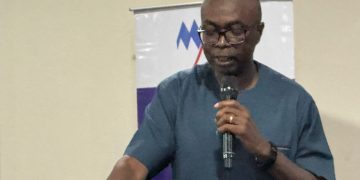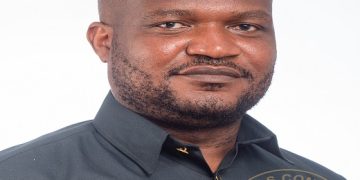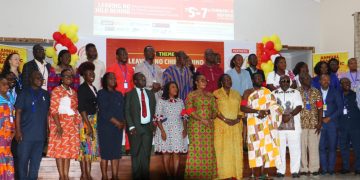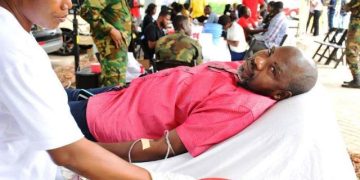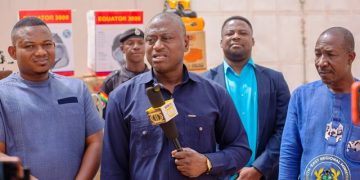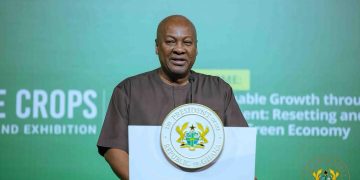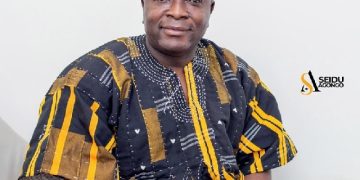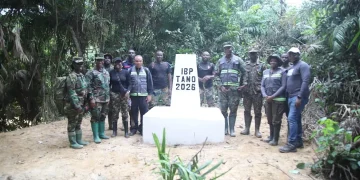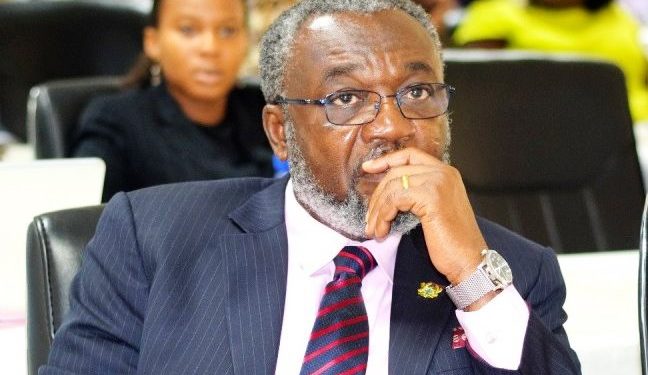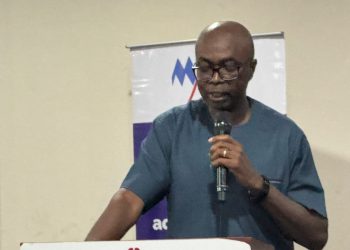Dr. Anthony Nsiah-Asare, former Presidential Advisor on Health under the erstwhile Nana Addo Dankwah Akuffo Addo administration has publicly disputed the estimated cost of completing the ambitious Agenda 111 hospital projects.
During an interview with Accra-based AsaasepaFM with Bonohene, Dr. Nsiah-Asare revealed that the government requires only $1.4 billion to finalize these projects, contradicting former President John Dramani Mahama’s assertion that the figure stands at $1.7 billion.
Dr. Nsiah-Asare expressed skepticism about the source of Mahama’s figure, stating, “We need $1.4 billion. It is not $1.7 billion; I don’t know where President Mahama got that figure from.” This clarification comes at a time when the nation is keenly focused on the progress of these critical healthcare infrastructure projects.
The Agenda 111 initiative involves a mix of government and external funding. Dr. Nsiah-Asare explained that district hospitals and two psychiatric hospitals are being funded directly by the Ghanaian government.
In contrast, Dr. Nsiah Asare explained that regional hospitals and the Accra Psychiatric Hospital are reliant on external funding sources.
He said “President Nana Addo’s government used Oil Revenue (ABFA) and Direct Budgetary Allocation to finance the District and Psychiatric Hospitals. Regional hospitals and the Accra Psychiatric Hospital, on the other hand, are funded externally”
“Currently, five contractors associated with the externally funded projects have submitted their proposals, which are awaiting approval at the Ministry of Finance. However, the process is stalled due to ongoing debt restructuring efforts. Once these financial hurdles are cleared, the contracts can be finalized, and construction work can commence.”
Dr. Nsiah-Asare emphasized the potential benefits of utilizing Ghana’s oil revenue to support these healthcare projects.
He suggested that allocating a portion of the oil funds could provide the necessary financial boost.
He noted, “I strongly believe in my heart that if we utilize our oil revenue wisely, we’ll leave a lasting legacy. The legacy fund is a heritage for future generations. For instance, Korle Bu Hospital was built over 100 years ago, yet we’re still benefiting from it today.” Dr. Nsiah-Asare believes that investing in healthcare infrastructure will not only improve public health but also generate economic returns in the long term.
Drawing parallels with Dubai, Dr. Nsiah-Asare highlighted how strategic investment in infrastructure can yield lasting economic benefits. Dubai, once heavily reliant on oil, has diversified its economy by using oil revenues to develop sectors that continue to generate income even as oil reserves dwindle.
In a similar vein, Dr. Nsiah-Asare advocates for Ghana to focus its oil wealth on building robust healthcare infrastructure.
“In the future, when people ask about Ghana’s oil wealth, what will we say we did with the money we earned? Take Dubai, for example – they have oil, but they’ve invested their oil revenue in initiatives that generate more income. In Ghana, if we focus on developing our health infrastructure, it will create revenue streams within the system.
He added added “I think we should allocate a certain percentage of our oil revenue, and even increase it slightly, reference it, and utilize it effectively, which will be beneficial”.
This, he believes, will not only enhance the nation’s healthcare capabilities but also create a sustainable economic legacy for future generations.
Background:
President John Dramani Mahama has revealed that only one hospital under the Agenda 111 project has been completed since his administration took office, highlighting the immense financial burden required to complete the initiative.
Speaking at a meeting with the Christian Council, Mahama disclosed that the government would need $1.7 billion to complete and operationalise the remaining hospitals.
“The previous government started Agenda 111 but has not been able to finish the hospitals. There are so many of them unfinished. Even the ones they commissioned don’t have a single bed. Now we need 1.7 billion US dollars to complete the Agenda 111 projects,” he lamented.
Mahama urged churches and religious organisations to partner with the government in addressing the stalled hospital projects to improve healthcare accessibility.
“If the missions have a hospital in an area, we are not coming to compete with the missions by building a hospital. We will use the resources to improve the mission hospitals so that they can provide the service,” he stated.
He further suggested that religious missions could take charge of some of the incomplete hospitals, complete their construction, and manage them to ensure efficient healthcare delivery.
“So I am also proposing that if some of the missions are interested, they could finish some of the hospitals and manage them,” he added.
However, President Akufo-Addo has admitted for the first time that the timeline given by his government for the construction of all hospitals under the government’s Agenda 111 project, was overly ambitious.
The President, who said this in parliament on Wednesday, March 30, 2022, when he delivered the State of the Nation Address, said the projects will be completed before January 7, 2025.
In August 2021, President Akufo-Addo cut sod in the Ashanti Region to signal the beginning of the hospital projects, which were scheduled to be completed in 18 months across the country.
Source: www.kumasimail.com / Kwadwo Owusu


